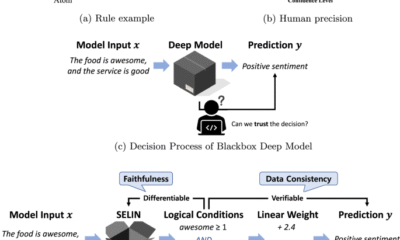HOWELL, N.J., July 30, 2025 (GLOBE NEWSWIRE) — Momba, a pioneering AI technology company, today announced the launch of its agentic AI solution designed specifically for business analysts and project teams. The solution automates the grunt work of business analysis while helping professionals catch what others miss, from buried risks to untapped opportunities across every document and project.
Founded in 2024 with the vision to inspire smarter work and bold outcomes, Momba addresses the critical pain points plaguing business analysts who spend countless hours on administrative tasks instead of strategic analysis. The solution’s intelligent automation capabilities transform weeks of manual work into minutes of focused insight generation.
“Business analysts are drowning in documentation, endless meetings, and administrative overhead that keeps them reactive instead of proactive,” said Momba CEO and Founder Asim Rizvi. “Our new agentic AI solution gives them time back and puts them back in control, so they can focus on what they do best – cultivating relationships, analyzing and solving problems, and driving exceptional business value.”
Key solution capabilities
Momba’s agentic AI solution solves the most pressing challenges facing business analysts today:
- Accelerated requirements gathering. The tool helps analysts get to clarity faster by automatically extracting, organizing, and validating business needs, from stakeholder input, user feedback, and meeting notes, without marathon meetings or endless revisions.
- Administrative overhead elimination and enhanced efficiency. Momba’s one-click, smart prompt library generates and maintains business requirements, epics, and user stories automatically in minutes.
- Enhanced cross-team collaboration. The solution provides a single project view for updates, ownership, and momentum, reducing the need for status meetings and clarification calls.
- Proactive change management and improved quality and outcomes. Momba’s built-in intelligence automatically flags potential issues early, including out-of-scope requests, missing details, hidden risks, and non-functional requirements.
“Traditional business analysis tools create bottlenecks for business analysts and their teams, tracking overhead instead of prioritizing faster and higher quality work,” explained Kristy Tupper, Momba’s head of product. “Our solution flips this dynamic by creating a collaborative workspace where key information is accessible in real-time, freeing analysts to focus on strategic work instead of constant firefighting.”
Enterprise-grade security and integration
Built on Google Cloud infrastructure, Momba is secure by design with encryption, a world class loosely coupled architecture for AI, identity protection, and real-time threat detection.
Early users report significant productivity gains, with document review time reduced from hours to minutes and overall project delivery acceleration. The solution’s AI-organized project workbench provides fast access to key insights while translating business input into development-ready documentation.
Basic free access and tiered pricing available
Momba offers a basic, free version of its solution that includes core features for document analysis, requirements generation, and basic project organization, as well as individual, team, and enterprise pricing. For more information about Momba and to sign up, visit https://www.momba.ai.
About Momba
Founded in 2024 with the vision to inspire smarter work and bold outcomes, Momba helps business analysts and project teams work faster, stay focused, and deliver better results. Built by business analysts and project workers for their peers, its agentic AI solution tackles common roadblocks like sifting through long documents, summarizing meetings, and organizing scattered insights, so teams can spend more time on what matters.
Momba makes it easy to generate summaries, requirements, epics, and user stories in minutes using a built-in library of smart prompts. It also automatically flags potential issues early, like out-of-scope requests, missing details, hidden risks, and non-functional requirements, so teams avoid surprises, stay on track, and deliver with confidence.
With features like a home dashboard and project workbench, Momba helps users stay in flow, reduce distractions, and pick up right where they left off. Built on Google Cloud, Momba is secure by design with encryption, identity protection, and real-time threat detection. Teams using Momba report higher productivity, better quality, and faster project delivery. Stay connected with Momba on LinkedIn, Facebook, X, YouTube, and Reddit, or learn more at https://www.momba.ai and send us a message.
Media Contact:
Adrienne Rupp
Phone: 603-312-9495
Email: adrienne@momba.ai
Photos accompanying this announcement are available at:
https://www.globenewswire.com/NewsRoom/AttachmentNg/1e9b8928-428c-42dd-bc42-33c19ac1a255
https://www.globenewswire.com/NewsRoom/AttachmentNg/d471bd78-edb9-4146-b394-68a38b5b531f











































